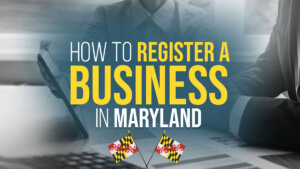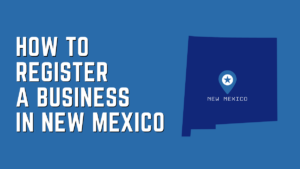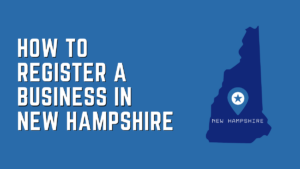Starting a business is an exciting and fulfilling journey, but registering your enterprise can feel daunting, especially if you’re new to entrepreneurship. Luckily, with the right guidance and tools, registering your business in Massachusetts can be straightforward and stress-free.
This comprehensive guide offers a clear, step-by-step approach to help you register your business in Massachusetts. We’ll provide practical tips and resources to make the process even smoother. Whether you’re launching a new venture or formalizing an existing one, this guide breaks down the entire process into seven easy steps.
Understanding that business registration can be complex, we’ve also put together a list of top services like Northwest Registered Agent to assist you every step of the way. Let’s work together to register your business in Massachusetts successfully!
>> Massachusetts Business Registration – Northwest >>
Featured Partner
Northwest Registered Agent
Start with an LLC
for $39 + state fee
Priority Support Team
24/7
Form an LLC online
Fast And Easy
How to Register Your Business in Massachusetts in 7 Simple Steps
If you have a good grasp of the required protocols, registering a business in Massachusetts can be an effortless endeavor. Make use of this carefully crafted guide consisting of seven steps to register your business in Massachusetts efficiently and lay down a solid groundwork for future triumph.
Step 1: Determine Your Business Structure
The perfect business setup for your Massachusetts establishment will depend on the unique qualities of your enterprise and its growth goals. You have various options to explore, ranging from incorporated to unincorporated structures. Let’s inspect each structure and the corresponding responsibilities.
Please keep in mind that certain business structures, particularly those that require incorporation, must be registered with the Massachusetts Secretary of the Commonwealth.
Sole Proprietorship
In Massachusetts, a Sole Proprietorship is the simplest type of business structure where the owner and the business are considered as a single entity legally. The owner is personally liable for any debts or responsibilities taken on by the business.
Establishing a Sole Proprietorship involves minimal legal and administrative requirements, making it a straightforward process. Although there’s no mandatory registration with the state for this type of business, certain local permits or licenses may be required depending on your location within Massachusetts.
General Partnership
A General Partnership is a business that multiple individuals own together. In this kind of setup, the partners divide both the profits and losses. It’s worth mentioning that each partner takes personal responsibility for any debts or legal obligations incurred by the business.
Even though registering a General Partnership isn’t mandatory in Massachusetts, you might need to submit a “Massachusetts Business Certificate” (DBA) in the particular city or town where your business operates.
Limited Partnership (LP)
In Massachusetts, a Limited Partnership consists of general partners who are accountable for managing the business and facing personal liability without any restrictions, along with limited partners who provide capital but have limited liability. To establish a Limited Partnership in Massachusetts, it’s required to submit a document called “Certificate of Limited Partnership” to the Massachusetts Secretary of the Commonwealth.
Limited Liability Company (LLC)
An LLC is a flexible business structure that offers the same liability protection as a Corporation, along with the added benefits of partnership tax advantages and operational simplicity.
In Massachusetts, you must file a document called the “Certificate of Organization” with the Massachusetts Secretary of the Commonwealth to establish your LLC’s existence. It’s also crucial to create an Operating Agreement that clearly defines how your company will be managed and identifies its owners.
Corporation
In the state of Massachusetts, there are two categories of Corporations that provide limited liability protection and are recognized as distinct legal entities from their shareholders.
- C-Corporations
- S-Corporations
To successfully register a business in Massachusetts, you must submit the “Articles of Organization” to the Massachusetts Secretary of the Commonwealth. Corporations have extra requirements, such as creating bylaws, distributing shares, and holding regular meetings with board members and shareholders.
When deciding on the best business structure for your specific needs, consider factors like liability protection, tax obligations, and management responsibilities. If you need help making this crucial decision, it’s advisable to consult with a legal or business professional.
>> Massachusetts Business Registration – Northwest >>
Step 2: Select a Unique Business Name
When naming your business in Massachusetts, there are three main strategies to consider. The first option is to go through the formal process of registering your entity’s name. Alternatively, you can acquire a trademark or choose to register a legal name while operating under a different one.
It’s important to note that each state has its own set of rules and guidelines for business naming. Therefore, it’s crucial that you familiarize yourself with Massachusetts’ specific requirements.
The approach you take in naming your business will depend on the unique needs and circumstances of your entity. While exploring all three methods may be beneficial for ensuring the originality of your business name, choosing just one option can also be effective.
Although not obligatory, maintaining consistency in the chosen name across all registration processes can provide advantages. To gain further insight into each naming procedure in Massachusetts, let’s delve deeper into each method separately.
Legal Entity Name
In Massachusetts, it’s required for all businesses to register a specific legal name that will identify them within the state. It’s crucial to ensure that the chosen entity name is unique to prevent any possibility of another business having the same name.
The naming regulations in Massachusetts also include requirements regarding the use of company suffixes such as LLC, LP, or Corp. It’s necessary for the selected entity name to reflect the type of business being registered accurately. To confirm if a particular name is available, you can check with the Corporate database maintained by the Secretary of The Commonwealth in Massachusetts.
Trademark
In Massachusetts, having a trademark means having legal protection for the name or logo of a business at a national level. To ensure that the chosen name or logo is unique and not already being used by someone else, it’s essential to conduct a thorough search in the USPTO database.
Once the trademark is registered, it effectively prevents other businesses from using a similar name or logo for similar goods or services, providing comprehensive protection across the nation. However, it’s important to note that obtaining a trademark doesn’t automatically grant unrestricted rights to use the registered name or logo universally.
Doing Business As (DBA)
In Massachusetts, businesses have the option to register their official name and operate under a different one, commonly known as a Doing Business As (DBA) name. To use a DBA name, it’s required to file a Business Certificate (DBA) with the city or town clerk where your business is situated. While these names are subject to federal trademark laws, there’s no requirement for DBAs to be exclusive within the state.
By understanding and analyzing these naming tactics, you can effectively safeguard your business name in Massachusetts and preserve your brand’s identity.
>> Massachusetts Business Registration – Northwest >>
Step 3: Consider Taxes and Other Costs in Massachusetts
LLCs in Massachusetts are classified as pass-through entities, resulting in the transfer of income or losses to the owners, who then report and pay taxes on their personal tax returns. LLC owners may be subject to self-employment tax on the profits earned by the LLC, as well as state and federal income taxes.
It’s important for LLCs in Massachusetts to understand their tax obligations and ensure compliance with both state and federal tax laws.
- Self-Employment Tax: LLC proprietors who withdraw earnings from the LLC must remit self-employment tax. This tax is overseen by the Federal Insurance Contributions Act (FICA) and encompasses Social Security, Medicare, and additional perks. The existing rate for self-employment tax stands at 15.3%.
- State Income Tax: LLC proprietors might have to settle state income taxes on the portion of the LLC’s earnings that they possess. The specific amount of state income tax that LLC owners must pay will be contingent upon their personal income and the particular state in which they live.
- Federal Income Tax: LLC proprietors might have an obligation to remit federal income tax on the proceeds they receive from their LLC. The precise sum of federal income tax that LLC owners are liable for is contingent upon their personal income and filing situation.
- Sales Tax: Massachusetts LLCs have the obligation to gather and transmit sales tax on taxable sales and rentals of goods and services. The initial rate for Massachusetts sales tax is 6.25%, although there might be extra sales tax based on the business’s location. LLCs must obtain a permit from the Massachusetts Department of Revenue to collect sales tax, as well as submit monthly, quarterly, or annual sales tax returns.
- Business Licenses and permits: Massachusetts LLCs may need to acquire specific licenses and permits for their business operations. The particular prerequisites differ based on the nature and location of the business. To obtain information regarding business licenses and permits, LLCs can refer to the Massachusetts Secretary of State’s website.
Entrepreneurs in Massachusetts can simplify the registration process by utilizing online platforms like Tailor Brands. BusinessRocket offers a range of services specifically designed to assist business owners in setting up their ventures.
These services include filing with the Secretary of The Commonwealth, obtaining an Employer Identification Number (EIN), and creating an operating agreement. They provide ongoing compliance support to ensure that businesses remain in good standing and comply with state regulations.
>> Register Your Business With Northwest >>
Step 4: Register and Acquire Licenses and Permits in Massachusetts
In order to conduct business in Massachusetts, it’s crucial to acquire the appropriate licenses and permits. The following are the essential prerequisites:
Tax Registration: If you intend to sell products in Massachusetts, it’s necessary to obtain a sales and use tax registration certificate from the Massachusetts Department of Revenue (DOR). If you have employees within the state, you must register with the DOR for employer withholding. These registrations can be easily completed online through MassTaxConnect.
EIN (Employer Identification Number): If your company has employees or is subject to separate taxation from your personal taxes, it’s necessary to acquire a federal Employer Identification Number (EIN) from the IRS. While obtaining an EIN may not be obligatory for your business, there are frequently practical advantages in doing so.
Many banks necessitate an Employer Identification Number (EIN) to establish a business account, while other collaborating companies might also demand an EIN for payment processing purposes. The application process for obtaining an EIN can be done conveniently online and doesn’t incur any filing fees.
Regulatory Licenses and Permits: In order to comply with regulations, different licenses and permits are necessary in several domains, such as health and safety, environmental adherence, construction, and specific industries or services. To acquire the required state-issued regulatory licenses and permits, please consult the Licensing and Permits section on the official website of the respective state.
Although the website may offer certain details regarding licenses and permits in the area, it’s recommended to refer to the websites of specific cities or counties where you plan on doing business.
Professional and Occupational Licenses: Individuals in various fields or occupations often require specific licenses. The state’s official website usually offers a comprehensive list of licenses issued for professional and occupational purposes. For additional information, visit the Professional Licenses & Permits section on the state’s website.
>> Register Your Business With Northwest >>
Step 5: Open a Bank Account for Your Business in Massachusetts
Once you have obtained your EIN, it’s essential to begin opening a business bank account in Massachusetts.
The regulations that govern LLPs, LLCs, and Corporations require the establishment of a business bank account. However, sole proprietors and unincorporated partnerships aren’t obligated to maintain separate personal and business accounts.
In Massachusetts, setting up a business account is a simple procedure that involves visiting a local bank and completing the necessary paperwork. Before finalizing your choice of bank, it’s recommended to explore different options and compare rates and benefits offered by various financial institutions.
Even if you operate as a sole proprietor or unincorporated partnership in Massachusetts, it’s wise to have a dedicated business bank account to keep your financial transactions separate from personal finances. This will help avoid potential complications if you decide to incorporate your business in the future.
>> Consider Northwest Registered Agent >>
Step 6: Protect Your Intellectual Property in Massachusetts
If you have a business in Massachusetts, it’s important to protect any valuable Intellectual Property (IP) that you may have. This could include things like your company name and logo, which should be safeguarded against unauthorized use by others.
Depending on your business, whether you sell goods or provide services, consider protecting the design of your products or any original works such as writings, designs, or music that you create.
In Massachusetts, there are various options available for protecting your IP. It’s recommended that you promptly initiate the necessary applications to prevent unauthorized utilization of your Intellectual Property.
Trademark
In Massachusetts, a trademark refers to an identifiable symbol, phrase, word, or design that sets apart a product or service from others in the market.
To secure legal protection, trademarks must be officially registered with the US Patent and Trademark Office (USPTO). The registration process typically takes around four to six months to complete. Once registered, the trademark is safeguarded throughout the country, and legal action can be taken against any unauthorized usage.
Businesses in Massachusetts have the option of protecting their trademarks by registering them with the USPTO. This not only serves as a way to safeguard their brand and reputation but also provides legal recourse if there’s any unauthorized use of the trademark.
Copyright
In Massachusetts, copyright laws safeguard original artistic and intellectual works, including, but not limited to, literature, drama, music, artistry, software development, web content creation, and multimedia production. These laws protect written material, audiovisual recordings, and visual representations.
Once you create a new piece of work in Massachusetts that falls under the purview of copyright law, you automatically acquire legal protection as the creator. As the owner with exclusive rights over the distribution, reproduction, and creation of derivative works or sale of Intellectual Property, you have full authority over how your work is utilized.
However, there’s an option available for additional legal protection by registering your copyright with the U.S. Copyright Office. Registering for copyright in Massachusetts can fortify your rights against infringement and provide solid evidence in court should any litigation arise where enforcement becomes necessary.
Patent
If you develop a new product or piece of machinery in Massachusetts, obtaining a patent is crucial. A patent gives the holder exclusive rights over an item, preventing others from making, selling, or importing the patented item for a specific period.
The process of obtaining a patent is complex and can take up to five years to complete. Therefore, starting the process early is advisable if you want to safeguard your unique invention. Patent applications are submitted to the United States Patent and Trademark Office (USPTO).
Protecting your Intellectual Property in Massachusetts can safeguard your brand, products, and creations. This ensures that your business maintains an edge over competitors and thrives.
Step 7: Set Up Your Payment Infrastructure in Massachusetts
In order to ensure smooth operations for your Massachusetts-based business after registration, it’s essential to establish a reliable and user-friendly payment acceptance system.
There are several payment processing services available that offer easy-to-use interfaces and can seamlessly integrate with your website or point-of-sale (POS) system. Square, Stripe, and PayPal are among the popular options in this area. These systems provide flexibility and can be set up and customized fairly easily to align with your business goals.
These payment processors support a wide range of payment methods, including credit cards, debit cards, and ACH transfers, as well as digital wallets like Apple Pay and Google Pay. By choosing a trustworthy payment processing service, you can give your customers the convenience of paying through their preferred methods while ensuring secure transactions for both parties involved. This will contribute to an overall seamless experience during the transaction process.
Besides choosing a payment processor, it’s important to ensure your compliance with sales tax regulations in Massachusetts. This involves obtaining a Sales and Use Tax Registration from the Massachusetts Department of Revenue, which authorizes you to collect sales tax on taxable products and services.
Once you have set up your payment system, your business located in Massachusetts will be ready to serve customers and generate revenue confidently. By following these recommendations, you will establish a legally compliant business presence in Massachusetts.
>> Register Your Business in Massachusetts With Northwest >>
Massachusetts Entrepreneur’s Guide to Top 6 Business Registration Services
Massachusetts entrepreneurs can take advantage of a wide range of business registration services to support the growth and success of their startups and small businesses.
These services provide various solutions to ensure that businesses comply with both state and federal regulations. Here are some top-notch business registration services specifically tailored for Massachusetts:

Northwest Registered Agent
Related Post Link
Northwest Registered Agent has gained a reputation as a top online business registration company specializing in registered agent services, compliance management, and document submission.
Their exceptional quality and unmatched customer service set them apart, offering tailored assistance to help businesses stay compliant with both state and federal regulations. They provide a wide range of business formation services for LLCs, Corporations, and nonprofits.
>> Massachusetts Business Registration – Northwest Registered Agent >>

Tailor Brands
Related Post Link
Tailor Brands, a non-traditional business registration entity, functions as an online service specializing in branding and design. This innovative platform aids businesses in developing a polished and cohesive brand identity.
The services provided by Tailor Brands include logo design, business card design, and social media branding. Besides these offerings, they also provide an array of design tools and resources that enable businesses to create and customize their own branded materials with ease.
>> Register Your Business in Massachusetts With Tailor Brands >>

BusinessRocket
Related Post Link
BusinessRocket is an innovative internet platform that provides vital services for registering a business in Massachusetts. Utilizing its easy-to-navigate interface and expert assistance, BusinessRocket streamlines the entire procedure, starting from choosing the suitable business framework to submitting essential documents and acquiring relevant permits.
This platform offers personalized solutions designed to meet the unique requirements of each customer, guaranteeing effectiveness, affordability, and adherence to state regulations. With user-friendly tools and helpful resources at their disposal, entrepreneurs can confidently establish their enterprises while leaving administrative tasks to seasoned professionals.
>> Get Started With BusinessRocket >>

ZenBusiness
Related Post Link
ZenBusiness is a renowned online company registration service recognized for its assistance in registering businesses in Massachusetts, providing registered agent services, handling annual reporting, and more.
Their affordable prices and comprehensive packages include personalized support and an extensive range of resources to help businesses ensure compliance and promote growth. With its user-friendly platform and streamlined procedures, ZenBusiness makes business registration easier for entrepreneurs in Massachusetts.
>> Register Your Business in Massachusetts With ZenBusiness >>

Swyft Filings
Related Post Link
Swyft Filings is a reputable company that specializes in providing efficient and uncomplicated services for business registration. Their offerings include assistance with LLC formation, incorporation, and compliance.
They provide personalized support and a variety of tools to help businesses navigate forming their company while ensuring adherence to state and federal laws. With its user-friendly website and affordable rates, Swyft Filings makes registering a business in Massachusetts easy for entrepreneurs.
>> Register Your Business in Massachusetts With Swyft Filings >>

Bizee (Previously Incfile)
Related Post Link
Bizee is a reputable online platform that specializes in providing efficient and cost-effective solutions for business formation. They offer a range of package options, including registered agent services, compliance management, and document submission.
The user-friendly interface of Bizee ensures a smooth and hassle-free process for registering businesses in Massachusetts. Besides their services, they provide ongoing support and valuable resources to assist businesses in maintaining compliance and achieving growth.
For entrepreneurs in Massachusetts looking to launch their businesses, these business registration services come with distinct features and advantages. By carefully examining and comparing these services, entrepreneurs can select the one that aligns best with their specific requirements, ensuring a seamless and effective registration experience.
>> Register Your Business in Massachusetts With Bizee >>
Business Registration Laws in Massachusetts
Registering a business in Massachusetts requires careful consideration and following a series of steps. To better understand the business registration laws in Massachusetts, here are some important factors to keep in mind:
- Business Structure: Choose the appropriate legal framework for your business. Popular choices include being a sole proprietor, entering into a partnership, forming an LLC (Limited Liability Company), or establishing a Corporation. Each structure has its own set of obligations and consequences in terms of liability, taxation, and governance.
- Business Name: When registering your business in Massachusetts, it’s essential to select a distinctive name that aligns with state regulations. It’s crucial to avoid similarities with existing business names and any potential infringement on trademark rights. To determine if your preferred name is already claimed, you can use the Massachusetts Secretary of the Commonwealth website’s name availability search feature.
- Reserve Name (Optional): If you’re not quite ready to register your business in Massachusetts yet but want to ensure that you have a specific business name locked in, you have the option to reserve the name for a period of 60 days. This can be done by submitting an application to the Massachusetts Secretary of the Commonwealth.
- Register with the Secretary of the Commonwealth: To operate legally in Massachusetts, most businesses are required to complete registration with the Secretary of the Commonwealth. The specific requirements and procedures differ based on the type of business entity.
- Employer Identification Number (EIN): If your company employs individuals or functions as a Corporation or Partnership, it’s probable that you’ll have to acquire an Employer Identification Number (EIN) from the Internal Revenue Service (IRS). This unique number serves the purpose of taxation.
- Permits and Licenses: In order to meet your business requirements, it might be necessary to acquire particular licenses or permits on the local, state, or federal level. The conditions for obtaining these approvals vary depending on the industry and location. For detailed information about licenses and permits, you can refer to the Massachusetts Office of Consumer Affairs and Business Regulation website.
- Taxes: In Massachusetts, businesses have multiple tax responsibilities, which encompass income tax, sales tax, and employer taxes. It’s essential to acquaint yourself with the tax obligations and complete registration with the Massachusetts Department of Revenue to guarantee adherence.
The registration process for registering a business in Massachusetts can differ based on various factors, such as the type of business, its location, and other considerations. It’s advisable to seek guidance from a lawyer or consult with the Massachusetts Secretary of the Commonwealth to ensure that you’re following all current regulations.
>> Register Your Business in Massachusetts With Northwest >>
Alternative Business Registration Methods in Massachusetts
In Massachusetts, there may be other options for registering a business besides the traditional methods.
Online Registration
The Secretary of the Commonwealth’s office offers an online portal as the primary means of registering a business in Massachusetts. Through this convenient method, you can easily fill out and electronically submit all required forms.
Mail or In-Person Registration
If utilizing the Internet isn’t your preference, there are alternative options to register your business in Massachusetts. You have the choice of either mailing the completed forms or personally submitting them to the Secretary of the Commonwealth’s office. The required forms can be acquired from their website or requested via mail.
Legal Assistance
If you encounter difficulty navigating the registration process or desire expert assistance, consider seeking the expertise of a lawyer or a business formation service who can provide guidance in registering your business. These professionals are well-versed in handling the necessary paperwork and ensuring that all requirements are met.
Incorporation Services
Certain providers of incorporation services can help you with the process of registering your business in Massachusetts. These particular services take care of the necessary paperwork and administrative tasks on your behalf, making the registration process more streamlined and easier to manage.
Nonprofit Organizations
If you’re establishing a nonprofit organization in Massachusetts, it’s important to be aware of any specific requirements and alternative methods for registration. Typically, nonprofits are registered through the Non-Profit Organizations/Public Charities Division of the Attorney General’s office. Their website offers detailed information on the necessary forms and steps involved.
Different business structures, such as Sole Proprietorships, Partnerships, LLCs, or Corporations, may have varying registration processes and requirements. Therefore, it’s crucial to determine which structure is most suitable for your organization and ensure compliance with all relevant regulations during the registration process.
For up-to-date information on alternative methods for registering a business in Massachusetts, visit the official website of the Secretary of the Commonwealth’s office or seeking legal advice from professionals specializing in this area.
>> Try Northwest Registered Agent Today! >>
Benefits of Registering Your Business in Massachusetts
There are numerous benefits to registering your business in Massachusetts. A few of the perks include:
- Access to Business Incentives: Massachusetts provides a range of incentives for businesses, such as tax credits, economic development programs, and grants for small businesses. These incentives can be extremely beneficial for starting or expanding your business.
- Legal Protection: When you register your business in Massachusetts, it establishes a distinct legal entity that’s separate from you as an individual. This ensures the protection of your personal assets in the event of any business debts or liabilities.
- Credibility and Reputation: Businesses that have registered themselves tend to gain higher credibility among customers, suppliers, and investors. This shows that you’re committed to your business and can enhance your professional reputation.
- Business Support and Resources: In Massachusetts, there are many resources available to support businesses. These resources encompass guidance, instruction, and mentorship. The state offers programs focused on business development that not only facilitate networking but also provide valuable training for entrepreneurs.
- Access to the Massachusetts Market: By registering your business in Massachusetts, you establish a formal presence within the state. This can prove helpful when targeting customers in the local area.
- Legal Compliance: To adhere to local and state regulations, it’s often necessary to register your business in Massachusetts. This step can help safeguard you from any potential legal issues or financial penalties that may arise.
- Banking and Tax Benefits: By registering a business in Massachusetts, establishing a business bank account, applying for loans, and managing tax-related affairs becomes more convenient. Additionally, certain businesses may be eligible for state-specific tax advantages.
- Intellectual Property Protection: Registering your business name can offer a certain level of protection against others using the same or a similar name within your state.
It’s crucial to understand that although there are various advantages, registering a business can be intricate, and there might be ongoing responsibilities like annual filings and fees. It’s advisable to consult with a business advisor, attorney, or accountant to ensure you fully comprehend all the implications and requirements involved.
Do Businesses in Massachusetts Need to Register
Certainly, most businesses operating in Massachusetts are required to register in Massachusetts officially. The exact criteria for registration vary depending on the type of business structure and its nature, among other factors.
Typical forms of registration include obtaining a Massachusetts Sales and Use Tax Permit, registering a Limited Liability Company (LLC) or Corporation in Massachusetts, and acquiring professional certifications or licenses for specific industries.
Conducting thorough research on the specific requirements for your enterprise and ensuring compliance with all registration obligations is essential to avoid any potential legal or financial consequences.
>> Get Started With Northwest Registered Agent >>
How to Register Your Business in Massachusetts – Frequently Asked Questions
Bottom Line on How to Register Your Business in Massachusetts
Establishing a strong business presence in Massachusetts is crucial for adhering to state laws and regulations. While the process might seem complicated at first, following the required steps will help you build a solid foundation for your company.
Choosing an appropriate business name and legal structure that meets the Massachusetts Secretary of Commonwealth’s guidelines, along with filing all necessary documents, is key.
Securing the relevant licenses and permits based on your industry and location is essential. To simplify the process and ensure everything is in order, you might use a business registration service like Northwest Registered Agent.
Taking the time to register your business in Massachusetts can help you avoid potential legal and financial pitfalls, setting your company up for successful growth.
>> Get Started With Northwest Registered Agent >>
Related Articles
- Start a Limited Liability Company
- LLC Registration Services
- How to Start LLC in Massachusetts
- How to File a DBA in Massachusetts
- Cost to Form an LLC in Massachusetts
 Sections of this topic
Sections of this topic

















